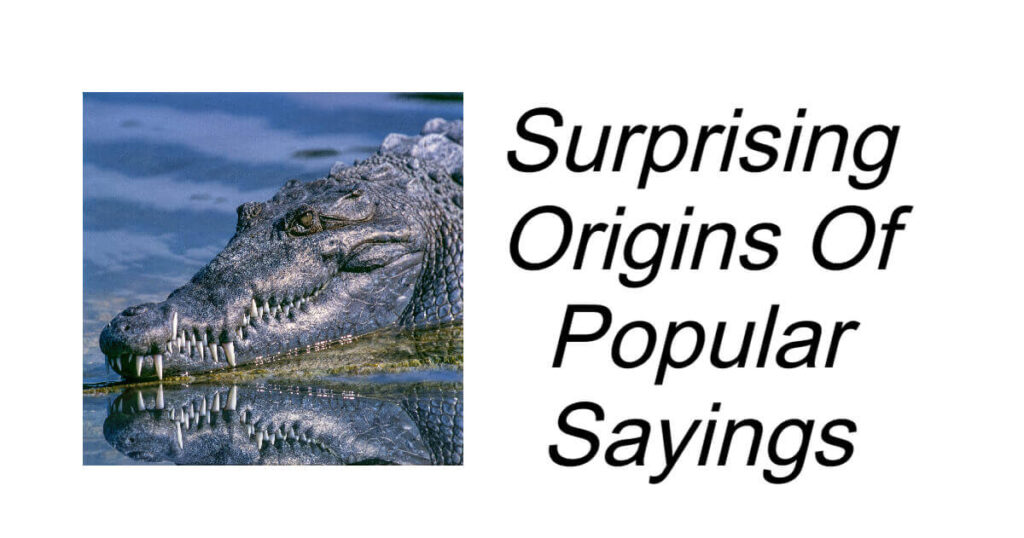Surprising Origins Of Popular Sayings
1.”Don’t look a gift horse in the mouth.”
A quick and easy way to check the age of a horse is to look at it’s gums as they recede with age, which then shows longer teeth. Therefore if you received a horse as a gift and immediately started inspecting its teeth that would be considered offensive as you’re checking out it’s worth. These days it’s like inquiring about the worth of a present today which is rude, hence the phrase.
2.”You’re pulling my leg.”
This is often said to someone in a joking or teasing manner. However it is thought to have sinister origins which are linked all the way back to crime in the 18th century. Street thieves would literally pull victims down by their leg in order to more easily rob them.
3.”Break a leg.”
There are multiple theories for the term “break a leg” although almost all originate in the theater and the superstitions they have. It has been said that wishing someone good luck outright is actually considered bad luck. Instead, it was more suitable to wish something bad on the actor before a performance, like breaking a leg, then the opposite is meant to happen. Another idea is that if you are in the theater you join a cast, therefore to break a leg can be a metaphor for getting a role in a cast.
4.”Dressed to the nines.”
While there is no concrete evidence to where this saying comes from, it basically means to be dressed exceptionally well. Nevertheless the most popular theory comes from the fact that the very best suits used a full nine yards of fabric.
5.”Close, but no cigar.”
Did you know carnivals used to give out cigars as prizes, so if you almost won you were close to getting a cigar, but not quite. This saying has evolved through the years and now basically means coming close but falling short of something.
6.”Once in a blue moon.”
A blue moon is the second full moon in a single calendar month, and it’s extremely rare. Therefore the phrase “once in a blue moon” is used as a way to suggest something that doesn’t happen very often.
7.”Crocodile tears.”
The saying “Crying crocodile tears” means to fake being upset or force tears. Saint Photios from 890AD claimed that crocodiles weep in order to lure prey, which is the earliest mention of this and most likely where the expression comes from. Research has found crocodiles do actually cry however that is more down to the fact their eyes dry out so they weep to keep them lubricated, rather than to feign a feeling.
You’ve just read, Surprising Origins Of Popular Sayings. Why not read Manager Had To Hire A New Employee.

